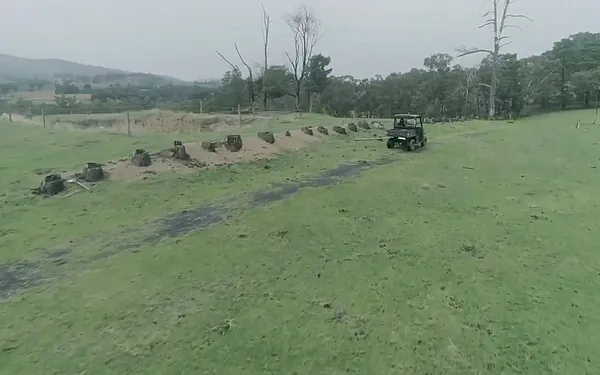The Victorian Government is spending $65million to support a new agriculture strategy to try and help farmers improve infrastructure and boost efficiency on farms, to remain internationally competitive.
Among the measures announced in today's budget was the establishment of an AgTech Regional Innovation Network and a Pathways to Export program to take advantage of recovering global markets, as well as boosting the Agriculture Energy Investment Plan and delivering a new phase of the Food to Market Infrastructure Program.
In addition, $50million will be spent to upgrade the accommodation, research and learning facilities at regional agricultural training facilities to help attract new students and support training in emerging sectors, such as the native food industry.
Victorian farmers and food processors will also benefit from the new Manufacturing and Industry Development Fund focused on supporting new investments and jobs in key growth potential sectors such as food manufacturing. While the new $2billion Breakthrough Victoria Fund is aimed at the agri-food sector and driving investment in research, development and the commercialisation of new innovations to accelerate industry growth and support jobs.

Photo: courtesy Premier Daniel Andrews YouTube page.
Minister for Agriculture, Regional Development and Resources Jaclyn Symes says the initiatives will help the sector to become more innovative, promote the uptake of new technologies, add more value to food grown and processed in regional Victoria and help businesses expand into new markets and create new jobs.
“This Budget continues to back our farmers through new technology, education and innovation - supporting them to create new jobs, find new markets and put food on the table for families across the state,” she said. “Bushfires, drought and the impacts of coronavirus have hit regional Victoria hard. That’s why we’re investing in the things that matter to local communities - like jobs, skills and support to get through the tough times.”
The Victorian Farmers Federation (VFF) President David Jochinke says farmers and regional Victoria are big winners from the budget, with substantial investment into connectivity, agriculture skills and agri-food research.
“We are pleased to see significant investment in research and skills through the $2 billion Breakthrough Victoria Fund and the Agricultural College Modernisation Program,” he said. “It’s vital we educate and equip the next generation of farmers with the skills and opportunities to support our growing agricultural industry.”
The VFF also says $300 million to address regional tele-communication blackspots in populated areas is a step in the right direction for regional Victoria.
“The next step will be to expand this investment state-wide to ensure universal access to critical telecommunication and infrastructure capable of delivering for regional Victorians,” Mr Jochinke said.
However, he added that while any investment into agriculture is welcome, it is extremely disappointing major rail projects required to transport produce from paddock to the port continue to be neglected.
“We’re still no clearer on whether the incredibly important Murray Basin Rail Project will be finished as originally planned back in 2016,” he said. “At a time when regional Victoria is crying out for investment to help lift us out of recession, the fact is billions are being spent on metropolitan rail projects, while the Murray Basin Rail Project enters its fifth year of uncertainty.”
The VFF would also have liked to have seen more done in the area of drought assistance.
“We are also disappointed the Government has failed to secure access for Victorian farmers to the On-farm Emergency Water Infrastructure Rebate Scheme by matching the federal funding,” Mr Jochinke said. “We hope the Victorian Government finds the cash to assist farmers to invest in drought-proofing water infrastructure.”
For more information and full budget papers, visit: www.budget.vic.gov.au
